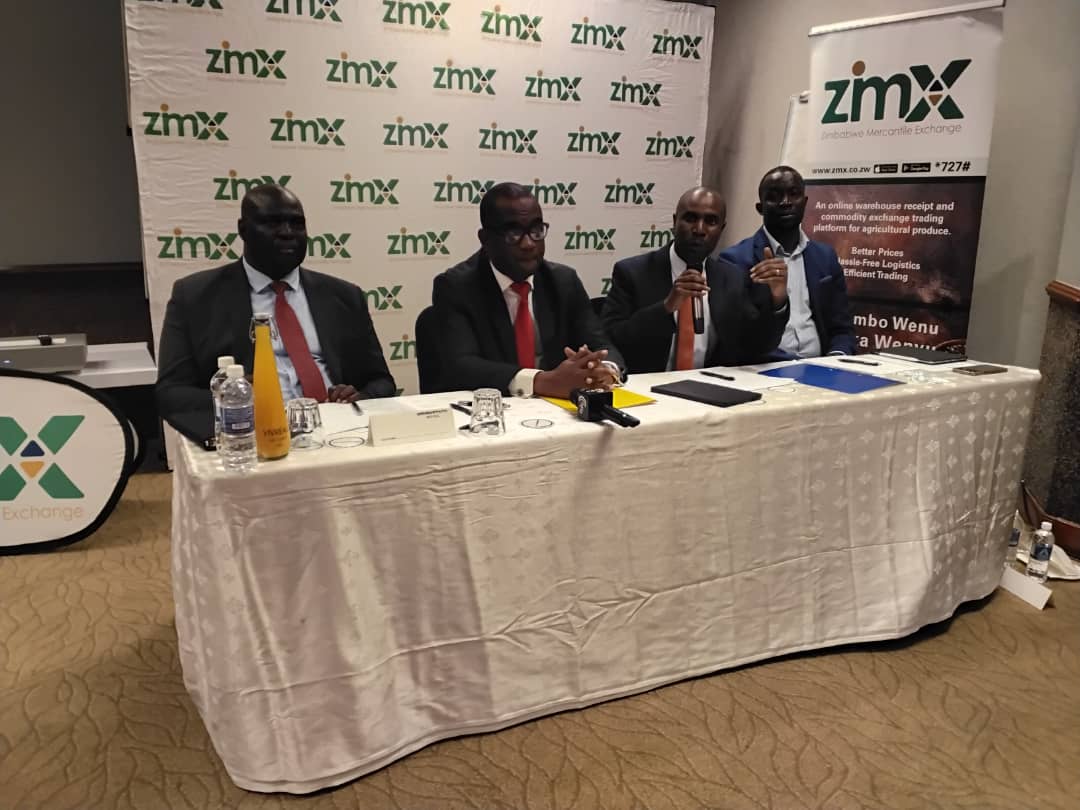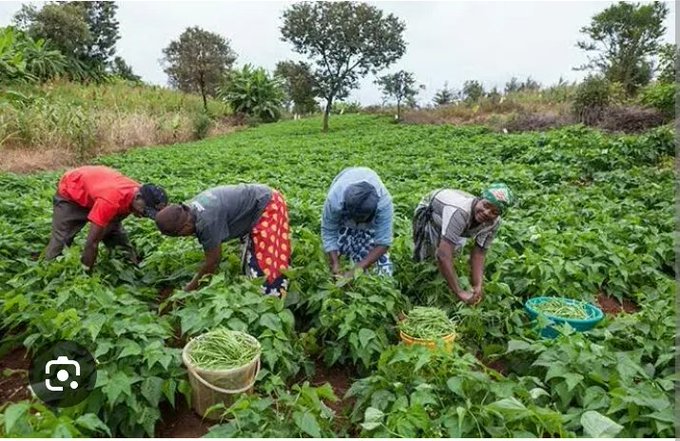ZMX-GMAZ Partnership Boosts Local Grain Trading and Food Security
Nature and ManZW Team
Jul 10, 2025

Nature and ManZW Team
Jul 10, 2025

By Sharleen Mohammed
A new partnership between the Zimbabwe Mercantile Exchange (ZMX) and the Grain Millers Association of Zimbabwe (GMAZ) is expected to transform the grain market and strengthen food security across the country.
Launched at a joint press conference in Harare on 9 July 2025, the agreement allows GMAZ millers to buy maize and other grains directly from the ZMX platform. This move brings structured trading to the sector and creates better opportunities for farmers, especially smallholders.
ZMX Chairman said the partnership will create a transparent and efficient system that benefits farmers, traders, and consumers alike.
"Our mission is to empower farmers, promote fair pricing, and give them a reliable marketplace," he said. "We now offer more than just trading—we provide storage through our Warehouse Receipt System, and help farmers access inputs through our Input Swap Scheme."
Through the Warehouse Receipt System, farmers can safely store their grain and receive receipts that can be used to trade or secure loans. The Input Swap Scheme allows farmers to access seed, fertiliser, and chemicals in exchange for part of their harvest, removing the burden of upfront costs.
GMAZ Chairman Tafadzwa Musarara described the partnership as a turning point in local agricultural support. He said the industry had learned valuable lessons during the drought of recent years, which forced Zimbabwe to import over 1.3 million tonnes of maize.
"Depending on imports is not sustainable. We now know that supporting local farmers is the best and most reliable path to food security," he said. "That's why we've committed to buying all maize delivered to ZMX. Farmers will not be stranded."
He assured the nation that maize meal will remain available in all shops until the next harvest in 2026 and urged consumers not to panic buy.
Since 2019, GMAZ and its partner organisations have supported over 800,000 hectares of land under contract farming. With this new partnership, they hope to grow that figure and increase maize and wheat production across the country.
The government has also played a key role in supporting this initiative, and both ZMX and GMAZ expressed appreciation for the Ministries of Agriculture, Industry and Commerce, and Health for creating an enabling environment.
This collaboration marks a big step towards making Zimbabwe's food systems more resilient, improving farmer incomes, and protecting smallholder producers from market shocks.
As the 2024/25 harvest continues, both ZMX and GMAZ say they are ready to facilitate smooth, fast, and fair grain trading nationwide.

Access to proper nutrition remains a challenge for many households affected by H...

Zimbabwe’s Ministry of Lands and Agriculture is pushing for 10% of the 2026 nati...

In the dusty plains of Mwenezi, a community once marked by hardship is now rewri...

To grow more food, we must first understand our soil. Fertiliser company Nutrima...